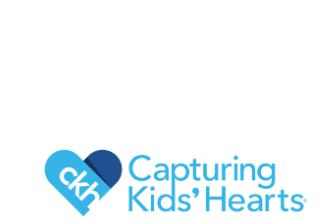
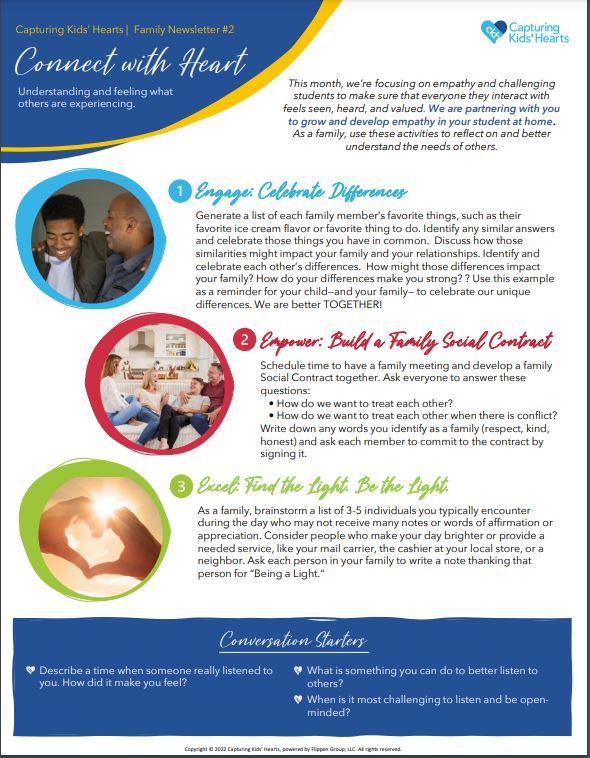
September Theme: Empathy. What is Empathy? Empathy is the ability to be aware of, understand, and be sensitive to another person’s feelings. Instead of focusing how these feelings impact ourselves, empathy motivates us to focus on others and respond with care and compassion. Why Focus on Empathy? Empathy builds positive classroom culture. Empathy empowers students to learn to understand each other to build trust and safety in the classroom. Empathy strengthens community. Empathy helps students strengthen their relationships with classmates, other students and adults at school, and at home. Empathy prepares your students to be leaders in their community. The best leaders understand the people they lead and are able to show they care. Empathy In Action: Take a different perspective. When you take a different perspective, you put aside your own feelings and reactions to see the situation through another’s eyes. Put aside judgment. Take a pause and rather than express conclusions about a situation based on what you see, step back and consider other things you may still need to know or understand. Communicate that you understand. Instead of giving advice, respond with reflective phrases like, “It sounds like you...” or “I hear that you...” to express that you understand and care.
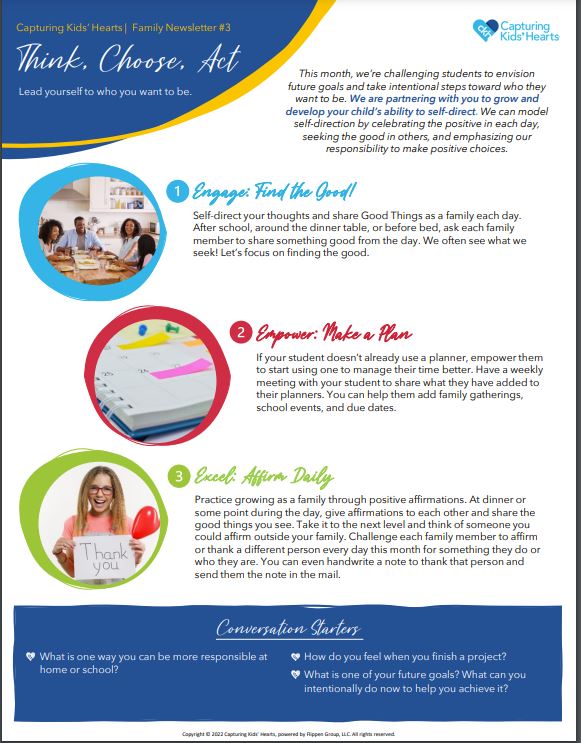
October Theme: Self-Direct. What does it mean to Self-Direct? Self-Direction is the ability and learned skill to cast a vision of future goals and then take intentional steps toward who, where, and what we want to be. Instead of focusing on things to control or avoid, we emphasize our responsibility to make positive choices related to our emotions, attitudes, and actions. Why focus on Self-Direction? Self-direction strengthens relationships. Self-direction helps to grow social skills and develop meaningful, positive relationships with others. Self-direction teaches personal responsibility. Learning to self-direct teaches students to take responsibility for their own actions. Self-direction helps us to regulate emotions: Self-direction empowers students to regulate their impulses and emotional responses to situations and circumstances in their life. Self-Direction in Action: Practice goal setting and action planning. When we establish goals and develop action plans, we learn to take intentional steps to successfully achieve goals. Monitor and adjust. Provide students with regular feedback and opportunities to self-assess progress toward goals to make adjustments and improvements in their behaviors. Reflect and evaluate. Facilitate discussions and reflection to prompt students to examine what they do, think, and say against their goals and vision for their life and learning.
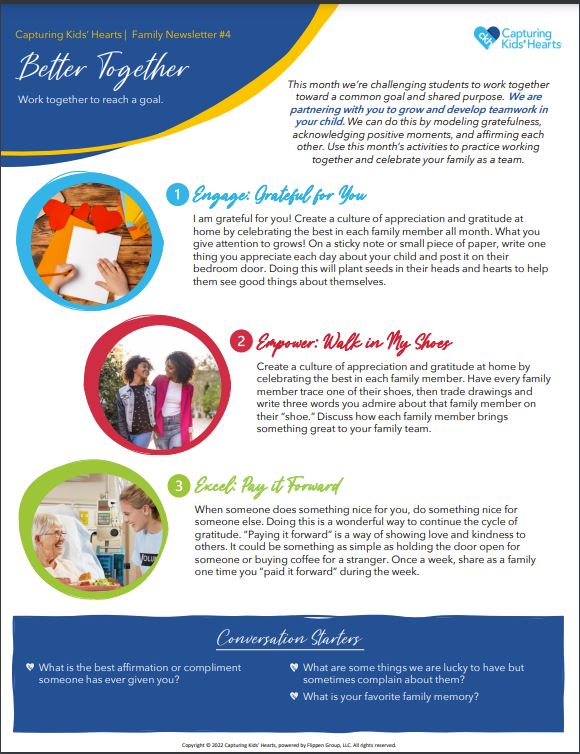
November Theme: Teamwork. What is Teamwork? Teamwork is the ability to work in unity with others towards a common goal. For us to learn how to become team players, it is important that we learn to listen, encourage our peers, and allow and invite others to contribute their talents and skills. Why focus on Teamwork? Teamwork improves communication: Teamwork helps us improves our verbal and non-verbal communication skills, conveying that we care and a relevant message. Teamwork builds interpersonal awareness: Growing a great team requires us to first build strong relationships through better understanding ourselves and others. Teamwork celebrates diversity. Teamwork thrives from diverse ideas that come from a mixture of different genders, cultures, expertise, experience, and problem-solving approaches. Teamwork in Action: Call them a team, not a class or group. A group consists of many different people. A team, however, has a common purpose and a shared responsibility for success. Require teams to set expectations for and manage their own behavior. Do not tell teams what type of behavior is expected -- let them decide for themselves with a Social Contract. Teach and encourage affirmations. Giving affirmations helps connect the team and builds trust, promotes engagement, and boosts a positive culture.
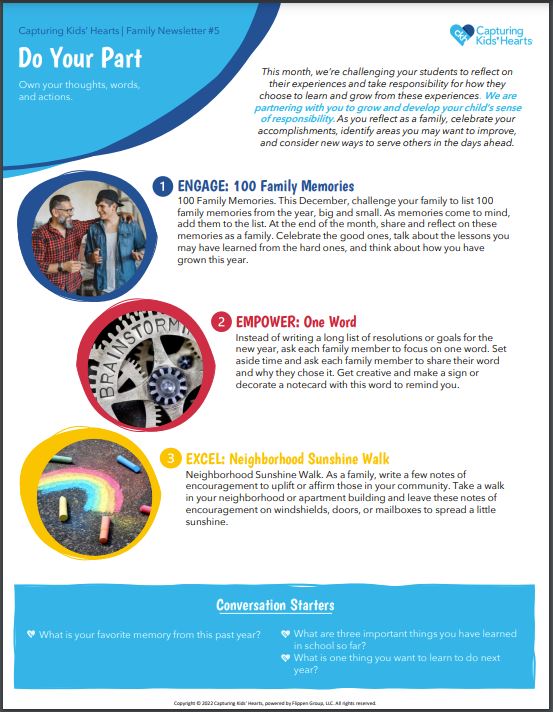
December Theme: Responsibility. Responsibility is the willingness and ability to take ownership of our thoughts, words, and actions. We have a responsibility to our school, family, and community to be accountable for our choices and how they impact ourselves and others. Why focus on Responsibility? Responsibility teaches resilience. It is not possible to persevere and achieve our dreams without taking personal responsibility seriously. Responsibility empowers us to own our actions. There is great power in being able to make conscious, calculated choices to reach goals and manage those things in our control. Responsibility teaches us to manage our time and resources. Responsibly organizing and prioritizing needs is an executive function of the brain that improves with practice. Responsibility in Action: Give students roles and responsibilities. When students have a leadership role in class, they are accountable for contributing positively to the classroom culture. Empower students with self-management tools. Provide students with tools to help manage stress and impulsivity while motivating them to meet goals. Clearly communicate consequences. Empower students to make choices and experience the consequences of their actions, both positive and negative.
